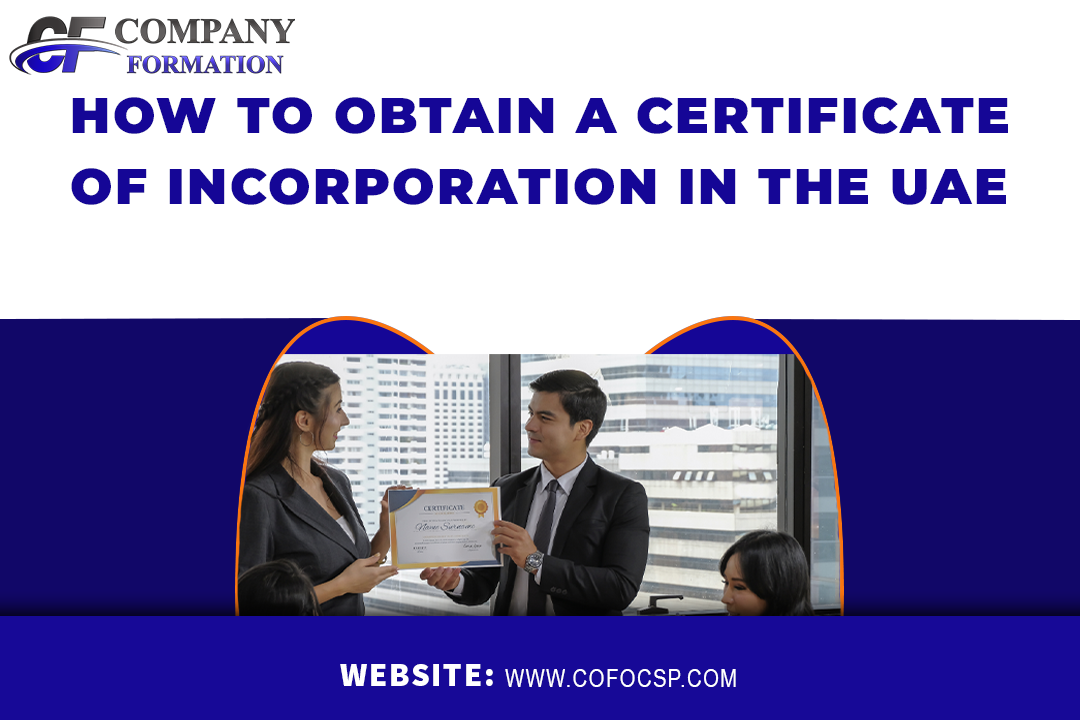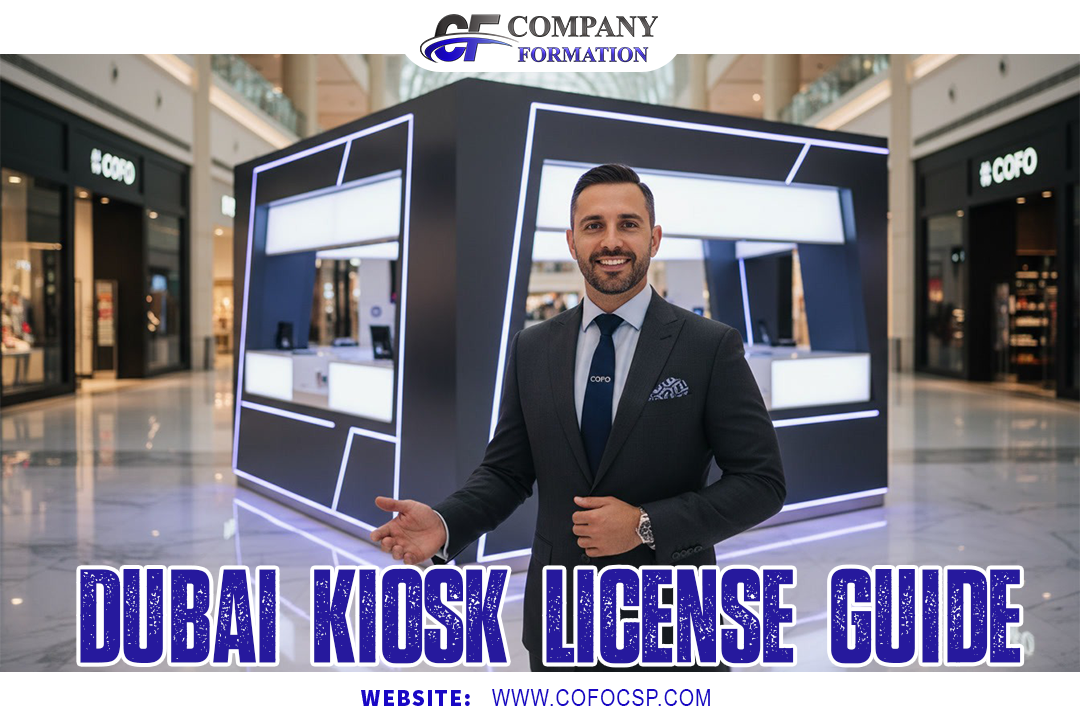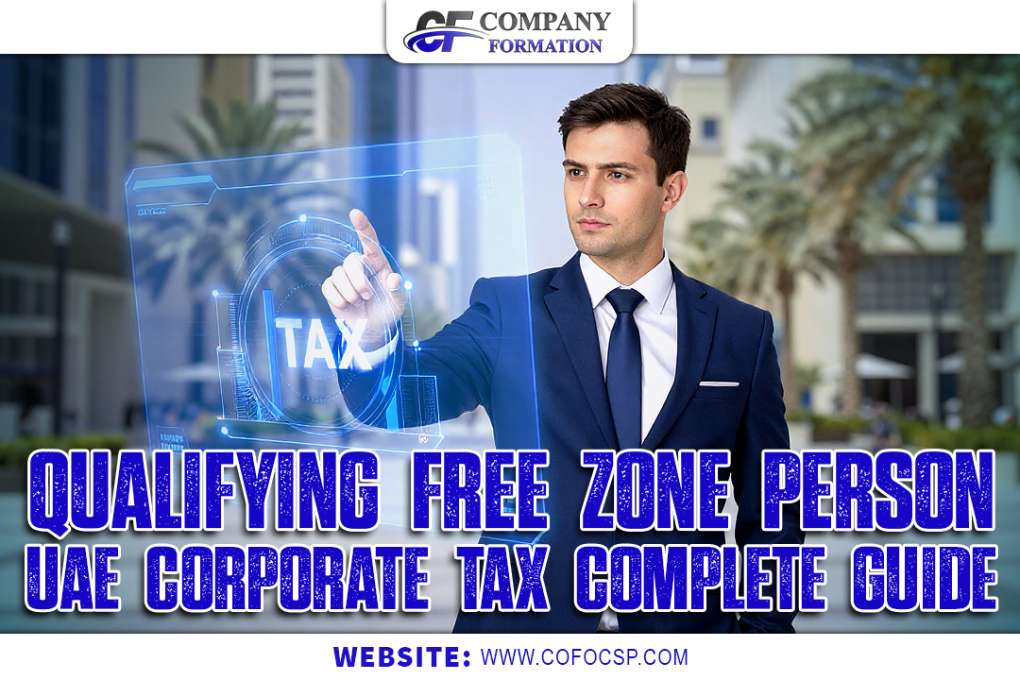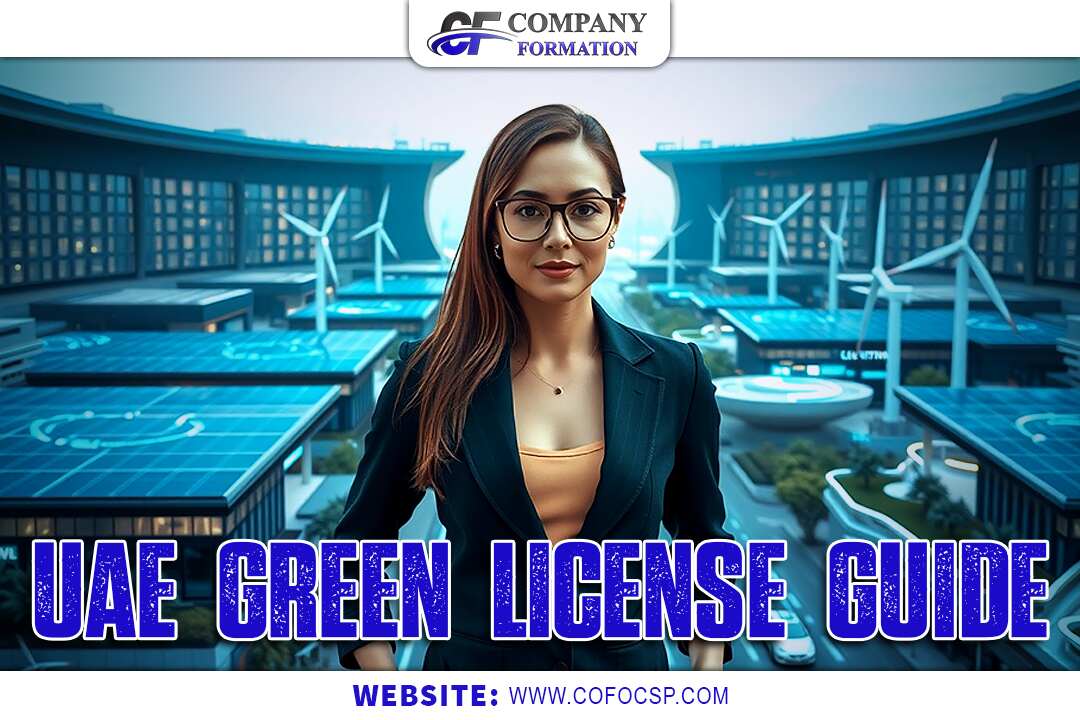To get a Certificate of Incorporation in the UAE, you must (1) choose your jurisdiction (mainland or free zone), (2) reserve a unique trade name, (3) prepare and notarise your Memorandum & Articles of Association, (4) file an online application through the DED Smart Services portal or the relevant Free Zone e-incorporation system, (5) pay the government fees (from ≈ AED 6,800 in a free zone to ≈ AED 50,000 on the mainland), and (6) collect the digital Certificate of Incorporation (COI) plus your trade licence. With the COI in hand you can open a corporate bank account, sponsor visas, and sign contracts in full legal confidence.
How to Obtain a Certificate of Incorporation in the UAE – 2025 Ultimate Guide
Whether in Dubai or any part of the United Arab Emirates, starting a business revolves around acquiring a certificate of incorporation. This document serves as an identification for your business, and without it, opening a corporate bank account, applying for a trade license, or sponsoring visas would not be possible. To ease smooth business setup in UAE or its business setup for Freezone, please refer to this comprehensive guide.
What is a Certificate of Incorporation in the UAE?
A certificate of incorporation in the UAE is an official legal document that validates a company’s registration. This means the company is considered a separate entity under the law in UAE jurisdiction.
This certificate can be visually compared to a birth certificate because it verifies the existence of the company and its capability to operate, making it possible for them to open corporate bank accounts, sign essential contracts, sponsor visas, and compute trade licenses.
The authority that issued the certificate is contingent on where your business is set up:
- For those in the mainland, the Department of Economic Development (DED) is the issuer of the certificate.
- For free zone operators, the relevant Free Zone Authority (DMCC, IFRZA, JAFZA, etc.) is the issuer.
What information does a Certificate of Incorporation contain?
- Company name and unique registration number
- Date of incorporation
- Type of business structure (e.g., LLC, Branch, Free Zone Company)
- Registered business address
- Approved business activities
- Shareholders’ and directors’ details
- Official seal and signature from the issuing authority
Quick Tip: If you’re setting up for the first time, checking a Certificate of Incorporation UAE sample online can help you understand what the document looks like and the information it carries.
Why is a Certificate of Incorporation Important? (2025 UAE Deep Dive)
A Certificate of Incorporation (COI) is not an extra administrative need; it is the backbone of your business because, without a COI, your business legally does not exist within the United Arab Emirates (UAE).It is critically important because it;
A. Provides Legal Recognition and Separate Identity
The Certificate of Incorporation UAE helps your business achieve an independent, distinct legal personality that is entirely different from its founders, shareholders or directors.
Meaning: Your business can enter into contracts, own property, sue and be sued independently.
Without a COI: You personally would be liable for business debts and lawsuits.
B. Enables Access to Banking and Financial Services
The banks operating in the UAE (for example, Emirates NBD, ADCB, and Mashreq) need the certificate of incorporation for:
- Opening a corporate bank account
- Applying for business loans, overdrafts, or credit facilities
- Setting up merchant accounts for card payments
C. Allows Visa Issuance and Residency Sponsorship
In the United Arab Emirates, companies serve as sponsors for visas. You cannot.
- Apply for employee visas
- Get investor visas
- Sponsor your family members without submitting your certificate of incorporation during the visa application.
Especially important for Small businesses, entrepreneurs, and free zone companies aiming to augment their workforce.
Especially important for: Entrepreneurs, small businesses, free zone companies looking to expand headcount.
D. Essential for Government Approvals, Licensing, and Contracts
You need your COI to:
- Apply for trade licenses (DED, DMCC, JAFZA, ADGM etc.)
- Get municipal and zoning permits for offices, stores, and warehouses
- Register with Chambers of Commerce
- Partaking in investment contracts and government tenders (including Expo 2025 projects!)
Fun Fact: Some government tenders require COIs that are less than 3 months old — so amending or updating your COI matters too.
E. Builds Credibility and Trust with Clients and Investors
An authenticated certificate of incorporation UAE (with a QR code) instantly establishes credibility.
It tells:
- Clients: You are legitimate and law-abiding
- Suppliers: You can be trusted with credit terms
- Investors: You have legal protections and ownership clarity
Modern Trend (2025): Due diligence teams and KYC (Know Your Customer) checks now automatically verify COIs using UAE Verify or NER portals.
F. Facilitates International Expansion and Trade
International registries, partners, and banks outside the UAE will:
- Demand your COI
- Require MOFA Attestation of your COI
- Cross-verify your registration on UAE official platforms
Without it, expanding into:
- GCC markets (Saudi Arabia, Qatar, Kuwait)
- Asia
- Europe
Becomes legally impossible
G. Ensures Personal Asset Protection (Limited Liability)
The COI separates your wealth from your business risks.
- If the company defaults, only the business assets are at risk.
- Your house, car, and personal bank accounts are protected.
Especially crucial for high-risk sectors like construction, real estate, trading, and fintech.
H. Required for Tax Registration and Compliance (2025 Onward)
Starting 2025, UAE businesses have to register for:
- Corporate Tax (9% after AED 375,000 profit)
- VAT (if supplies exceed AED 375,000/year)
The certificate of incorporation is the first document the FTA (Federal Tax Authority) demands for tax registration.
Without it, you cannot obtain:
- Tax Registration Number (TRN)
- Corporate tax registration certificate
- Customs code for import-export
Pro Tip: Incorporation in the UAE is fast, but renewal and amendment processes require your COI each time. Always keep digital and attested copies ready!
Key Details Included in a UAE Certificate of Incorporation
A. Company Name
- The Registered Name refers to the officially registered name of the Company as approved by the Registration Authority. The company will conduct all its operations and business activities under this name.
B. Registration Number
- A number used to identify the company that is assigned to the company by the United Arab Emirates Government or Free Zone Authority. Theregisterednumber_ comes along with every government/legal transaction, and they need this for all of them.
C. Date of Incorporation
- The day and date the company is legally formed and registered is also the Incorporation Date for that specific company. The company becomes operational on paper.
D. Registered Office Address
- The address where a company is deemed to be legally registered is the registered office of that company. This address is used for formal correspondence and must be in UAE.
E. Type of Company
- Description: Identifies the company as a Limited Liability Company (LLC), Private Shareholding, Free Zone Company, Offshore Company, or other options that have particular advantages and regulations related to them.
F. Nature of Business Activities
- A specific outline of the business activities the company may perform within the confines of its license. These activities need to be examined and approved during registration. The relevant government organs control this process.
G. Share Capital
- The registered information concerning share capital with the authorities. It includes the level of capital and, in some instances, the amount of shares allotted to each of the shareholders.
H. Details of Directors and Shareholders
- The provided information includes the names of the directors and shareholders of the company. Besides these, this part may capture nationalities, addresses, and the ratio of shares owned by each of the parties.
I. Duration of the Company
- Indicates whether the company is established for a specific term or is perpetual. These details are important for planning contracts or for planning in the long term.
J. Governing Authority’s Stamp and Signature
- A certificate of incorporation (COI) has an official signature from a governing body. This includes the Department of Economic Development (DED) and its official stamp. Their seal accomplishes acceptance of the document for purposes of recognition.
Mainland vs. Free Zone Certificate of Incorporation
Mainland Certificate of Incorporation
Issuing Authority:
- Typically issued by the Department of Economic Development (DED) in the respective emirate.
Key Features:
A.Broader Business Scope:
-
- Allows companies to operate anywhere within the UAE without restrictions on business locations.
- Permits direct trading within the local market and with other mainland companies.
- Allows companies to operate anywhere within the UAE without restrictions on business locations.
B. Local Sponsor Requirement:
-
- Historically, foreign shareholders required a local sponsor who would hold a minimum of 51% ownership. However, recent reforms have allowed for 100% foreign ownership in many sectors.
- Historically, foreign shareholders required a local sponsor who would hold a minimum of 51% ownership. However, recent reforms have allowed for 100% foreign ownership in many sectors.
C. Regulatory Body:
-
- Governed by the DED, which imposes specific regulations that can be more stringent than those in free zones.
- Governed by the DED, which imposes specific regulations that can be more stringent than those in free zones.
D. Visa Eligibility:
-
- Potentially higher visa quotas based on office size and business type, facilitating more extensive hiring from abroad.
- Potentially higher visa quotas based on office size and business type, facilitating more extensive hiring from abroad.
E. Annual Auditing:
-
- Required to submit annual financial audits to renew trade licenses.
- Required to submit annual financial audits to renew trade licenses.
F. COI Characteristics:
- Details the broader scope of operations.
- Must mention local sponsor details (if applicable), although this is being phased out in many sectors due to new ownership laws.
Free Zone Certificate of Incorporation
Issuing Authority:
- Issued by the governing authority of the specific free zone where the company is registered, such as DMCC, JAFZA, or ADGM.
Key Features:
A. Restricted Business Scope:
-
- Operations are generally confined to the free zone or abroad unless a local distributor is used.
- Designed for businesses that primarily target international markets.
B. 100% Foreign Ownership:
-
- Allows 100% foreign ownership without the need for a local sponsor.
C. Regulatory Body:
-
- Each free zone has its regulatory authority, which often provides more flexible and business-friendly regulations.
D. Visa Eligibility:
-
- Fixed visa allocations depend on office size or business license type. These often have simpler and less bureaucratic processes.
E. Tax and Custom Benefits:
-
- Exemptions from import and export duties.
- Companies in free zones are typically exempt from corporate tax for a guaranteed period.
F. COI Characteristics:
- Highlights the specific privileges and conditions of the free zone, such as tax exemptions and custom duties benefits.
- Permitted activities can be more specialized than those on the mainland.
2025 e-Portal & Digital Incorporation Tips
Understanding the e-Portal Landscape
Mainland Authorities:
- Department of Economic Development (DED): Each emirate’s DED offers an online portal where businesses can register, apply for licenses, and manage their documentation.
Free Zone Authorities:
- DMCC, JAFZA, ADGM, DIFC, and others: Each free zone provides a dedicated digital portal that facilitates the entire process from application to issuance of the Certificate of Incorporation.
Key Features of 2025 Digital Portals
- Automated Form Filling: AI-driven tools that auto-fill application forms based on previously entered information.
- Document Upload and Storage: Enhanced security protocols ensure that all uploaded documents are stored safely and are easily accessible.
- Real-Time Application Tracking: Instant updates on the status of your application, including any requests for additional information.
- Virtual Assistance: AI chatbots and customer service bots provide real-time assistance to answer queries and guide users through the application process.
- Integration with Other Services: Portals are integrated with visa processing, tax services, and other governmental services to provide a one-stop solution.
Steps to Obtaining a Certificate of Incorporation in the UAE
To get a Certificate of Incorporation in the UAE, follow these steps. This applies to both mainland and free zone areas. Each step is crucial to ensure legal compliance and successful business registration.
Step 1: Determine the Type of Business Jurisdiction
Choose between a Mainland setup or a Free Zone, depending on your business needs:
- Mainland: Suitable for businesses that intend to trade directly with the local UAE market.
- Free Zone: Ideal for businesses focusing on international trade or seeking specific benefits like 100% foreign ownership or tax exemptions.
Step 2: Select a Legal Structure
Decide on the legal form of your business:
- Limited Liability Company (LLC)
- Sole Proprietorship
- Branch of a Foreign Company
- Free Zone Establishment (FZE) or Free Zone Company (FZCO)
Step 3: Trade Name Reservation
- Reserve a trade name through the DED portal or the respective free zone’s digital service. Ensure the name is unique and compliant with UAE naming regulations.
Step 4: Prepare Required Documents
Gather all necessary documents. This process varies slightly between mainland and free zones but generally includes:
- Proposed company name
- Business activity description
- Shareholder details and passport copies
- Manager’s details and passport copy
- Initial approval form from the relevant authority
Step 5: Notarization of Documents
- Notarize the Memorandum of Association (MOA) and, if applicable, the Articles of Association (AOA) at a public notary in the UAE.
Step 6: Submit Application
- Submit your application along with all required documents to the Department of Economic Development (DED) for mainland setups or the managing authority of the respective free zone. Use their online portals for submission to streamline the process.
Step 7: Pay Fees
- Pay the necessary government fees, which can vary depending on the jurisdiction and the type of license required. These fees often include registration fees, license fees, and name reservation fees.
Step 8: Final Approval and Certificate Issuance
- Once your application is approved, the DED or free zone authority will issue your Certificate of Incorporation. You may receive a digital copy or a physical certificate, depending on the jurisdiction.
Step 9: Post-Incorporation Formalities
- Following incorporation, register for VAT if applicable, open corporate bank accounts, and apply for any necessary visas.
Required Documents for Certificate of Incorporation
To apply for a Certificate of Incorporation in the UAE, gather several documents. The requirements may differ based on whether your business is in a free zone or on the mainland.
For All Businesses:
- Application Form: Properly filled and signed.
- Passport Copies: Copies of the passports of all shareholders and the manager.
- Proof of Trade Name Reservation: Receipt that shows the trade name has been reserved.
- Memorandum of Association (MOA): Notarized MOA. Free zones often provide templates.
- Articles of Association (AOA): For some business types, detailing the company’s operations and management.
- Lease Agreement: Proof of office address is required for DED registration.
Additional Documents for Free Zones:
- Business Plan: Required for some free zones, detailing business objectives and processes.
- NOC from Current Sponsor: For individuals currently employed in the UAE and shifting to self-employment in a free zone.
Additional Documents for Specific Activities:
- External Approvals: Certain business activities require additional approvals from relevant government departments.
Cost of Obtaining a Certificate of Incorporation
Mainland and Free Zone Differences
- Mainland: Costs range from AED 15,000 to AED 50,000, depending on the business activity, location, and whether you need external approvals.
- Free Zone: Fees can be lower, around AED 7,000 to AED 25,000, with variations based on the specific free zone and the package chosen.
These fees typically cover:
- Trade name reservation
- Initial approval fee
- Notarization of MOA/AOA
- License fees
- Registration fees
Additional Costs
- Agent Fees: If using a business setup consultant in Dubai, expect additional costs for their services.
- Legal Fees: For drafting and notarizing documents.
- Office Space: Costs vary based on location and size, particularly in high-demand areas like Dubai.
Benefits of Having a Certificate of Incorporation in the UAE
- Legal Identity: Establishes your business as a legal entity distinct from its owners, which is crucial for protecting personal assets.
- Enhanced Credibility: Helps in establishing trust with stakeholders, clients, and financial institutions.
- Market Access: Enables businesses to trade within the UAE and beyond, apply for government contracts, and more.
- Financial Services: Essential for opening bank accounts and applying for loans.
- Visa Applications: Facilitates the obtaining of residence visas for investors, employees, and their families.
How to Verify Your Certificate of Incorporation
- Online Verification: Use the digital portals provided by the DED or free zone authorities to verify the authenticity of your certificate.
- Physical Verification: Check the watermark, stamp, and signature on the physical document.
- Third-Party Verification: Engage a legal firm if you require an in-depth validation for international or complex transactions.
Amendments and Renewal of Certificate of Incorporation
Amendments
If there are changes in shareholder structure, company address, or business activities, you’ll need to:
- Apply for amendments through the respective authority.
- Pay the amendment fees, which can range from AED 500 to AED 2,000.
Renewal
Annually renew your Certificate through the e-portal, which typically involves a renewal fee and presenting the latest audit report.
FAQs about Certificate of Incorporation in the UAE
Q1: What is a Certificate of Incorporation and what does it mean?
A Certificate of Incorporation is the official document that proves your company is legally registered in the UAE. It lists your company name, registration number, date of incorporation, share capital, approved business activities, and directors or shareholders. Think of it as your business’s “birth certificate” — without it, you can’t open a corporate bank account, apply for a trade licence, or sponsor visas.
Q 2: How long does it take to obtain a Certificate of Incorporation in the UAE?
- Free Zone: 5–10 business days via the zone’s e-portal (e.g., DMCC Tradelicense.ae).
- Mainland (DED): 10–20 days via DED Smart Services.
- Offshore: 3–7 days through RAK ICC or other registries.
Processing times depend on document completeness (MOA/AOA notarized, trade name reserved) and any external approvals required.
Q3: What are the costs involved in obtaining a Certificate of Incorporation?
- Free Zone Setup: AED 7,000–25,000 (includes name reservation, licence fee, desk package).
- Mainland Setup: AED 15,000–50,000 (covers DED registration, MOA/AOA notarization, licence).
- Offshore Registration: AED 8,000–16,000.
Additional expenses may include legal fees for drafting documents, translation and attestation, and office lease (physical or flexi-desk).
Q4: Can I complete the Certificate of Incorporation process entirely online?
Yes. Both mainland and free-zone authorities offer full digital workflows:
- Document Upload: High-resolution scans of passports, notarized MOA/AOA, tenancy contract.
- E-Signatures: Most portals accept electronic signatures.
- Online Payments: Pay reservation, registration, and licence fees in one session.
- Digital COI Download: Receive a PDF certificate with a QR code for instant verification via UAE Verify.
Q5: How do I verify my Certificate of Incorporation?
- QR Code / Barcode: Scan the code on your digital COI to reach the issuing authority’s verification page.
- Government Portals: Use DED Trade Name Search, National Economic Register, or free-zone verification tools.
- MOFA Attestation: For overseas transactions, get your COI attested by the Ministry of Foreign Affairs and the relevant embassy.
Q6: Do I need business setup consultants in Dubai for my company formation and certificate application?
You don’t have to, but experienced business setup consultants in Dubai can save you time and reduce mistakes. They’ll:
- Guide you on trade name reservation and legal structure
- Ensure correct MOA/AOA drafting and notarization
- Navigate portal quirks across DED and free zones
- Help with external approvals and share capital requirements
Pro Tip: Even if you’re tech-savvy, a consultant can fast-track your incorporation and handle any unexpected issues.
Conclusion: Build Your Business Strong with Legal Confidence
Getting a Certificate of Incorporation in the UAE is not just a rule; it’s the base of your business’s legal and operational setup. Whether you’re exploring a business setup in Freezone or a company formation in Dubai, understanding and effectively managing this process is crucial. With the right approach, you can ensure that your business not only complies with the UAE’s legal framework but also leverages it for substantial business growth and success.







